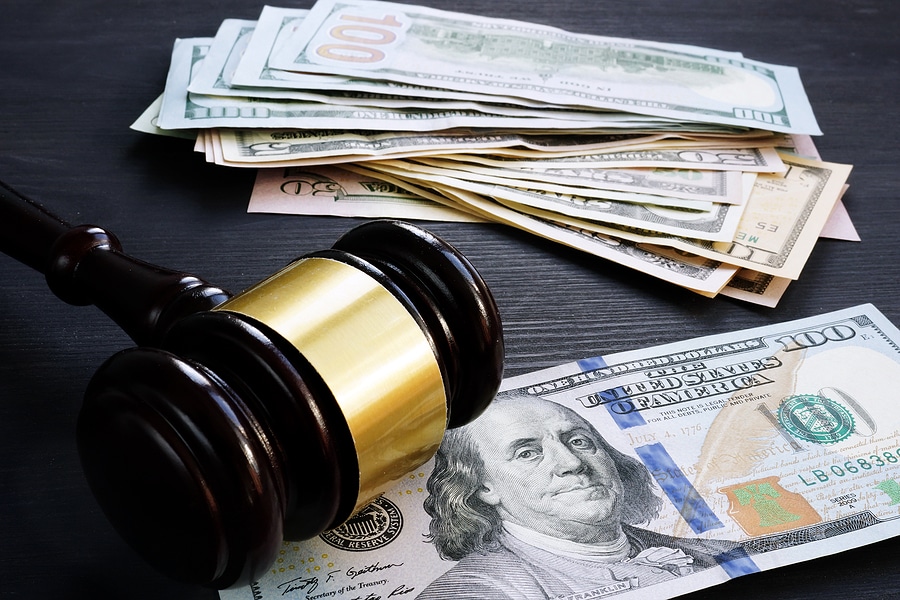In most cases, you would not have to remain on bail while you are awaiting trial on criminal charges. A large majority of defendants are released from jail in the interim. Some may be required to put up money as a condition of this release. Whether bail is set and how much you must post are crucial to your freedom while you are awaiting the resolution of your charges. The criminal defense attorneys at Hogan Eickhoff can represent you at this early stage of the case, where key decisions are being made.

Wisconsin Law Allows for Cash Bail to Be Set
Unless specified by Wisconsin law, defendants are allowed to be released from jail before they are convicted of a crime. The law attempts to balance fairness to the defendant with the public interest in ensuring that they appear in court for their trial and do not try to intimidate witnesses. In some cases, money is used to compel the defendant to show up in court to answer the charges. The judge may need to set bail for certain alleged offenses if there is a reasonable basis to believe that bail is necessary to assure the defendant’s appearance in court.
Bail Is Set Shortly After Your Arrest
You would appear in front of a judge at an arraignment shortly after your arrest. At this hearing, the charge would address several procedural matters, including making sure that you are aware of the charges against you. It is at this hearing that the judge would determine whether to require bail and the amount. The judge may also set additional terms for your release at this time. If you violate these terms, your bail could be revoked.
If you are charged with a violent crime, it is by no means automatic that the judge would set bail. Being accused of a violent crime is not a disqualifier for bail in itself. However, a judge could decide to keep you in jail to protect the public. Certain offenses allow but do not require a judge to deny bail in the case.
How the Payment of Bail Works
When the judge sets bail, you need to post it with the court. You would forfeit the amount of money that you posted if you do not appear at trial. Usually, the bail is high enough that you need to secure it from a bail bondsman. They would put up the money in exchange for a fee and some collateral. They would be the ones on the hook if you failed to show up for trial. Usually, the bail bondsman charges a fee of 10% to make bail on your behalf. If the judge sets the bail very high, it could be prohibitively expensive for you to post the bail, and you may need to remain in court. Some defendants may be too much of a risk for some bail bondsmen, and they cannot secure bail.
It is vital that you are represented at the arraignment because your freedom could be at stake. You have a right to due process when the judge is setting bail. Your attorney may argue why you should be granted bail and discuss the amount with the judge.
You Are Entitled to a Pretrial Detention Hearing
If bail is denied, you would be entitled to a pretrial detention hearing that would determine whether the state can continue to hold you in custody before trial. The state has the burden of proof to show that the judge should not set bail in your case. The state must show the following by clear and convincing evidence:
- You committed a crime that would allow the judge to deny bail
- The conditions of release are not enough to protect the general public
The state must present witnesses to back their case. You have the right to confront and cross-examine these witnesses through your attorney. You have the right to testify yourself without fear that your testimony would be used against you at trial. If the judge decides to deny bail, it would be for a period of 60 days. If you are being held in custody before trial, your case could be placed on an expedited trial calendar. In the meantime, your attorney can file a habeas petition with the court if you are being denied bail.
Wisconsin Has Recently Changed the Bail Laws
Even though the trend throughout the country has been for criminal justice reform, Wisconsin has recently amended its state constitution in a way that could make it tougher for criminal defendants to get bail. Now, judges are able to consider a defendant’s prior convictions for violent crimes when determining whether to set bail and the amount of it. Judges may also impose more stringent conditions on the bail in an effort to protect public safety.
Some defendants can now expect higher cash bail amounts, making it more difficult for them to remain out of jail pending their criminal case. Remember that they must pay a percentage of the bail to the bondsman out of their own pocket. In general, there is a high threshold that a judge must meet when the judge decides to hold someone without bail. However, economics may make it more of a reality that some defendants are effectively denied bail because they do not have a chance of meeting the requirements. There is now the prospect of a two-tier criminal justice system, where wealthier defendants have a greater ability to post bail.
Contact an Appleton Criminal Defense Attorney
If you have been charged with a crime, it is vital that you have an attorney representing you the very first time you are in court. Otherwise, you could end up being held in jail under certain circumstances. Reach out to the experienced attorneys at Hogan Eickhoff, and we will immediately begin defending your legal rights. You can schedule a free initial consultation by contacting us today at 720-450-9800.
